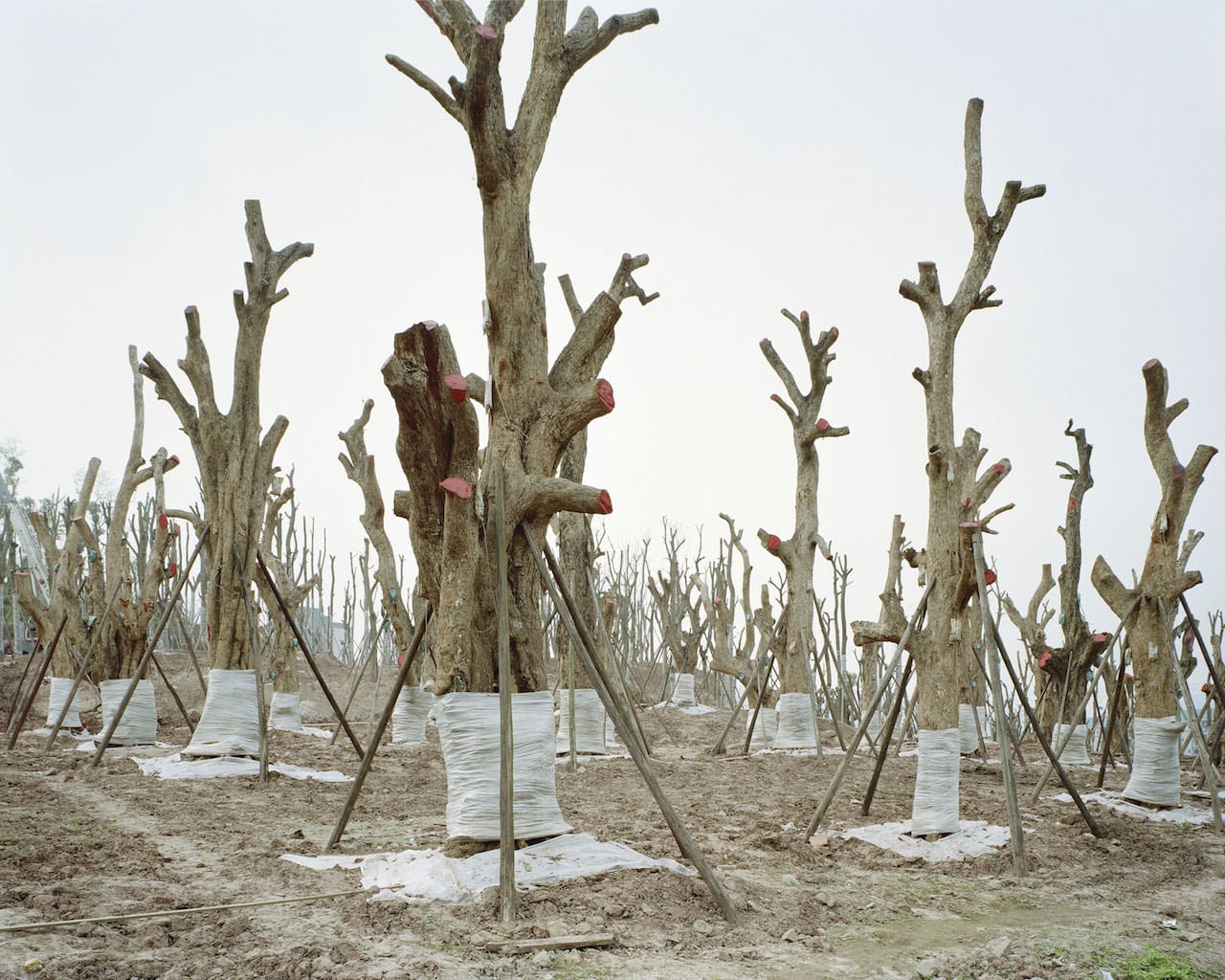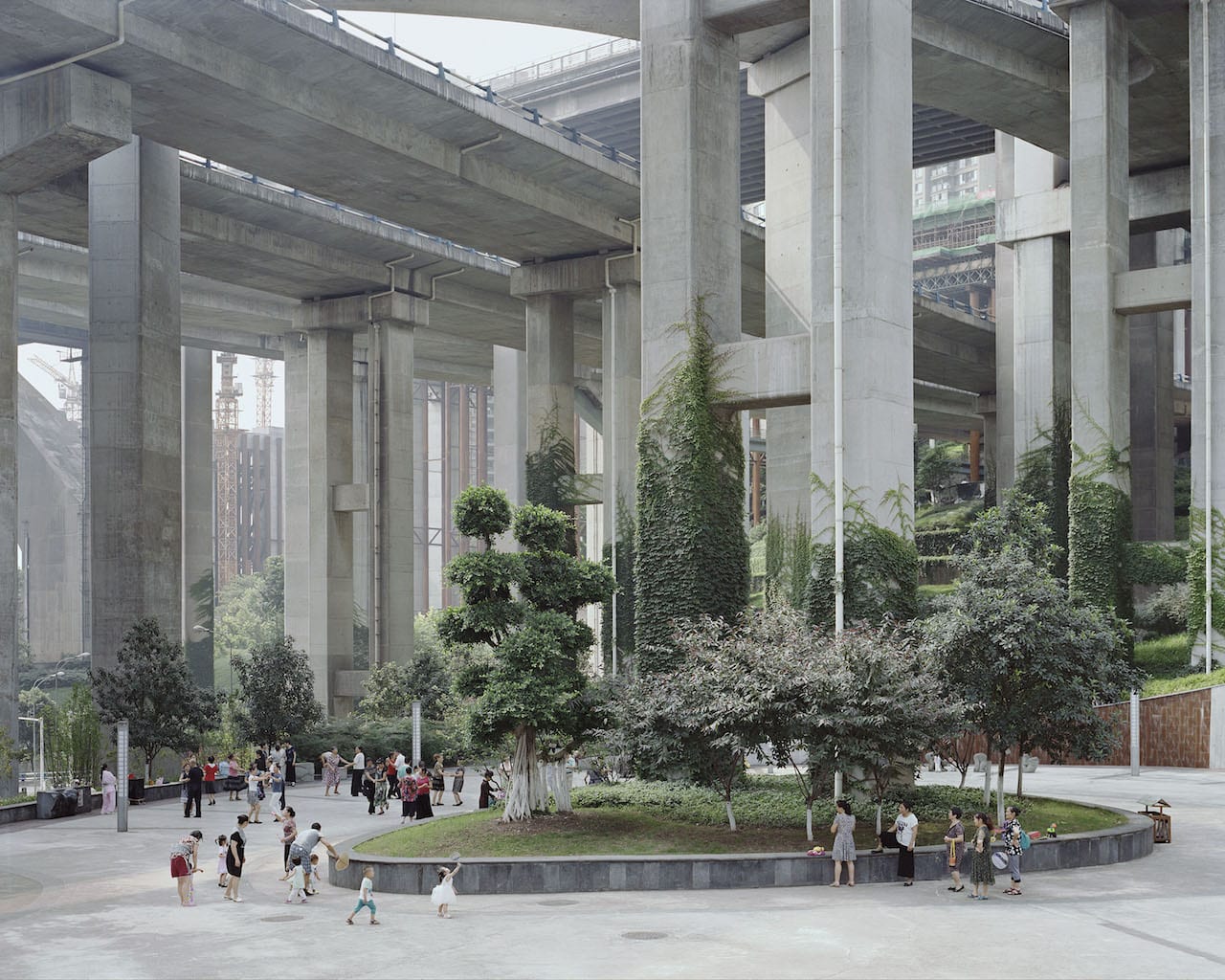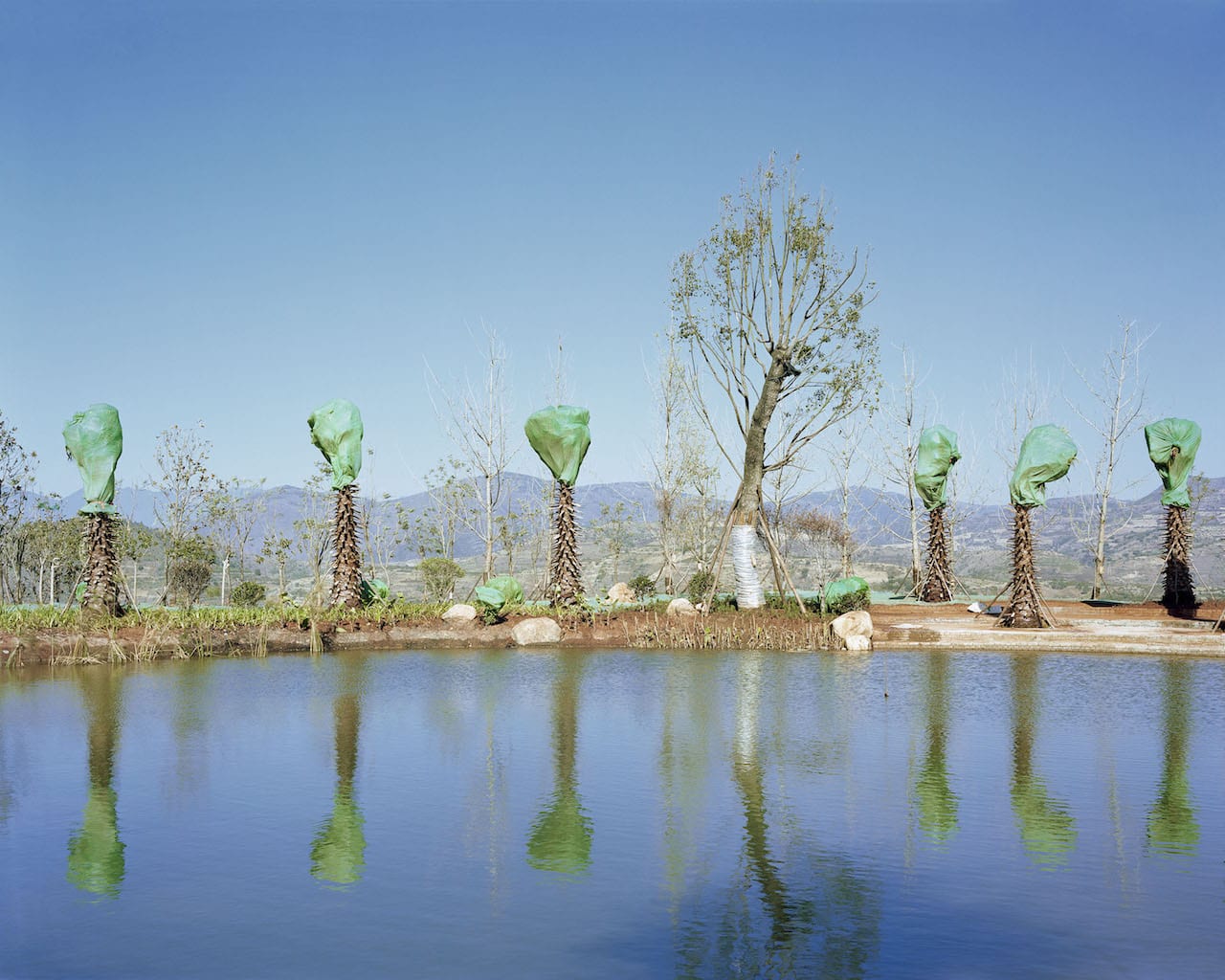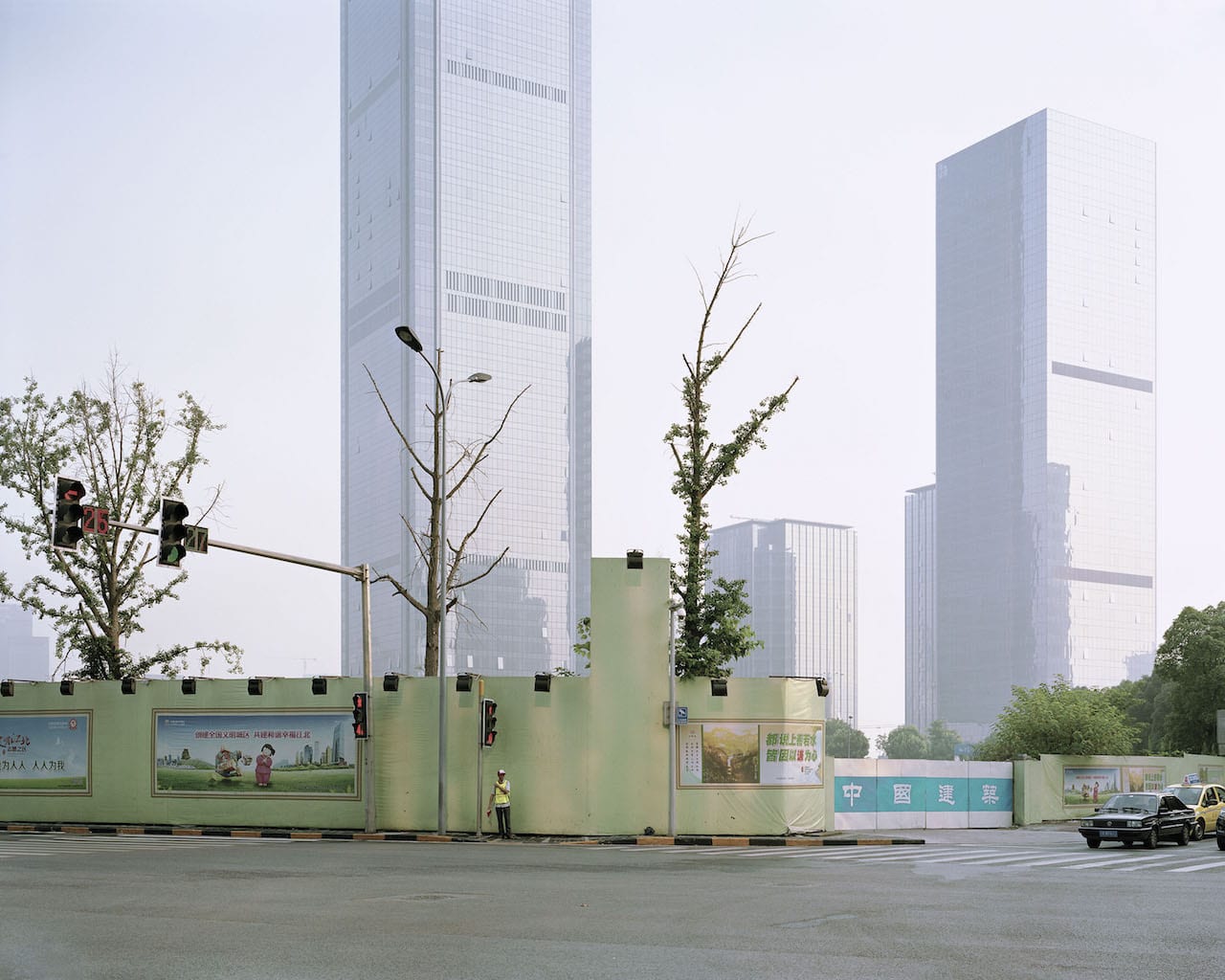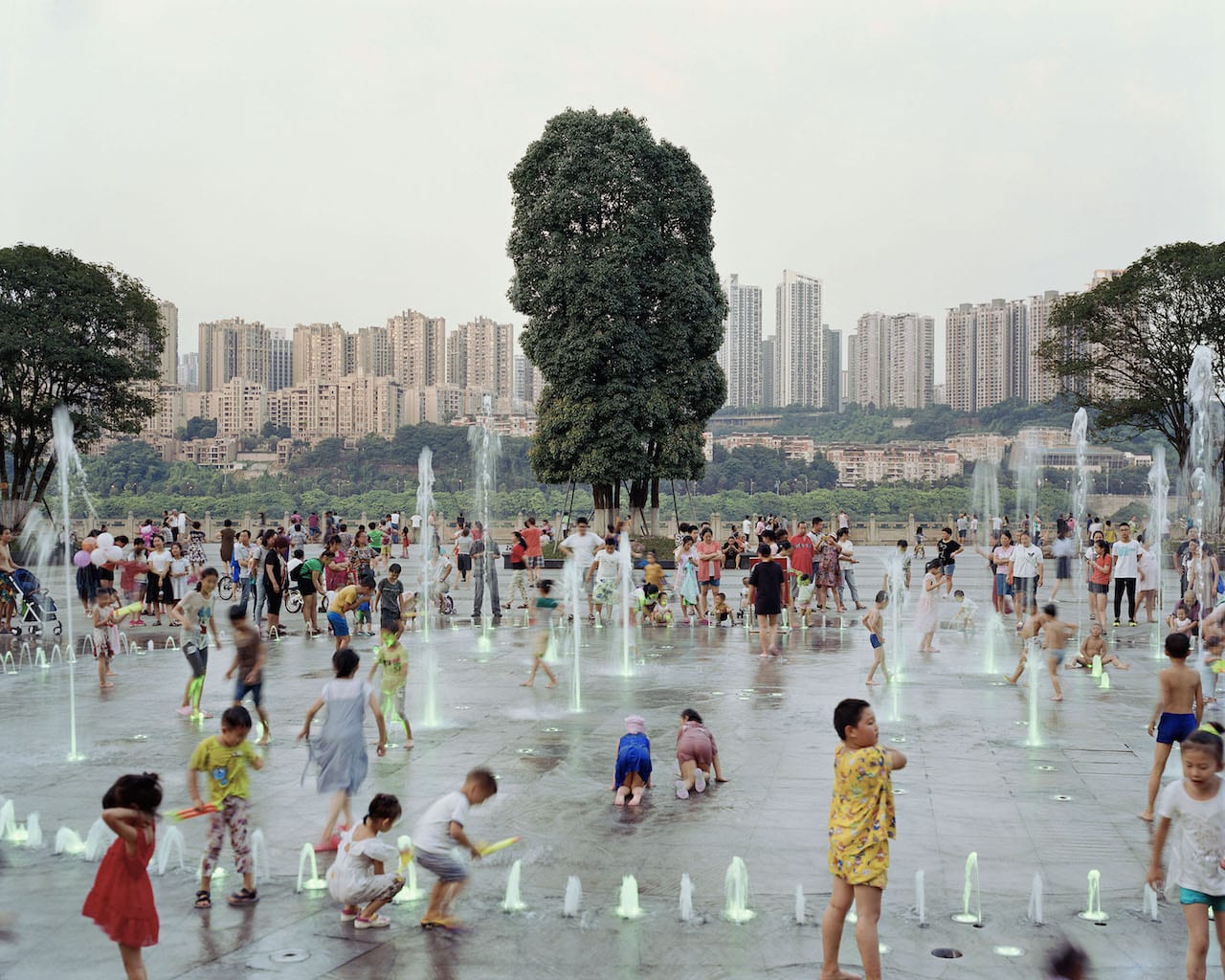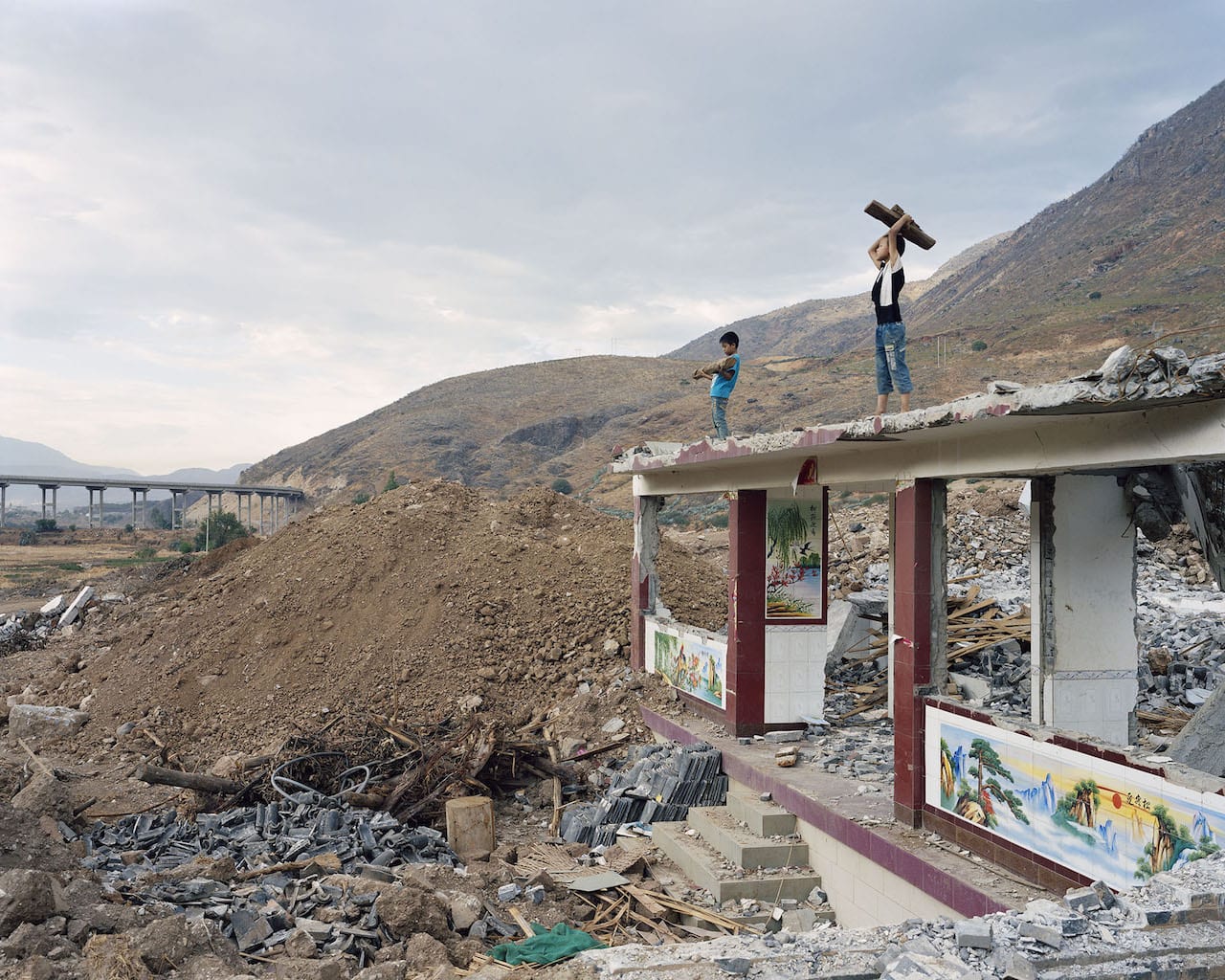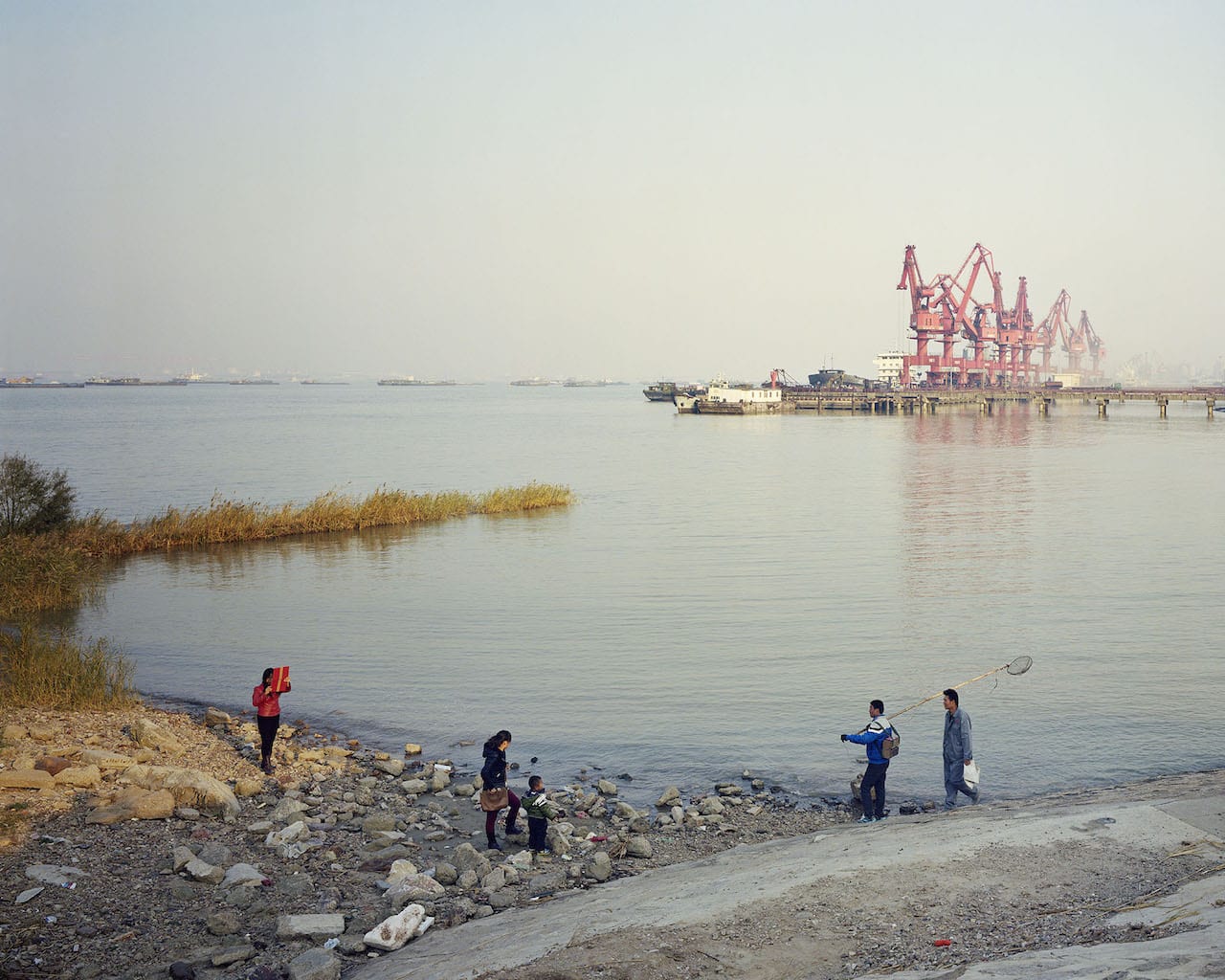In Chongqing, the largest city in southwest China, city officials have been planting trees for over a decade, aiming to create a “forest city”. But after investigating the origins of these trees, photographer Yan Wang Preston uncovered a troubling process. “The whole concept of trying to be green is being abused,” she says.
By way of example, she tells the story of Frank – a 300 year-old tree that’s a central character in her new book, Forest. When Preston first encountered Frank in 2013, he was being forcefully removed from a small village that was soon to be flooded by one of the Yangtze River dams. Frank was sold to the owners of a five-star hotel in a nearby county for 250,000 RMB, approximately £30,000. When asked whether the tree would survive, one of the guards replied with pride, reassuring Preston that they were all experts at transplanting trees.
But when she returned in 2017, Frank had been dead for over two years – and so had the tree that had followed it. “The older the trees are, they more likely they will die, because it’s hard for them to adapt to a new environment,” says Preston. “I’m interested in the complicity of this whole thing. For the tree, it’s very sad to be relocated. But then, the ultimate motivation is to be closer to nature”.
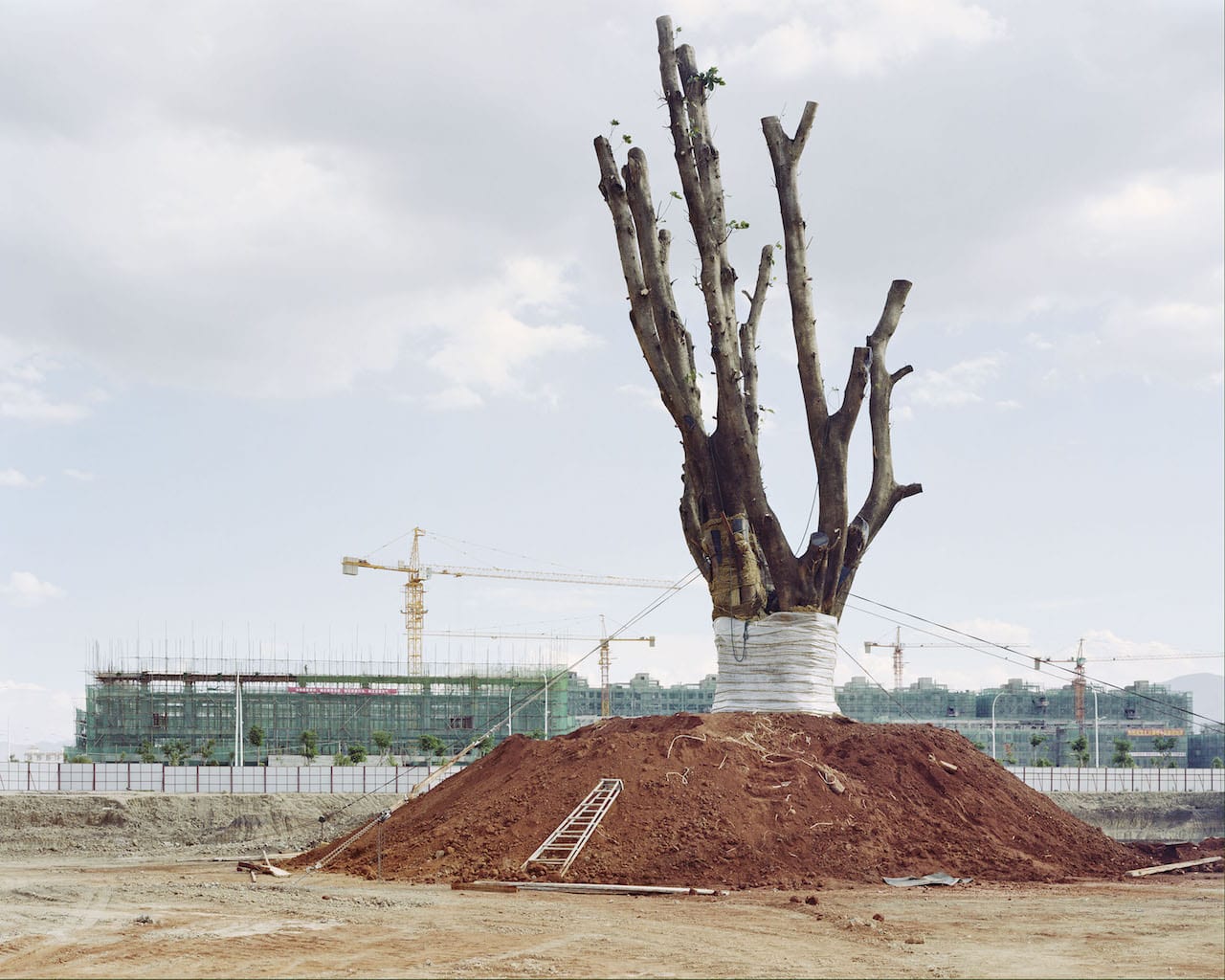
Preston was born in China, where she studied clinical medicine and worked as an anaesthetist for three years in Shanghai. Moving to the UK in 2005 with her husband, who’s British, she decided it was time for career change. A keen amateur photographer, she completed an MA in photography at Bradford college, going on to start a PhD which she completed last year.
She first started photographing trees in 2010, initially without a project in mind but then – when she returned the following year and realised they were being transplanted – by design. Preston put together a work-in-progress book version of Forest with Blurb back in 2011/12 but continued to research and shoot the project; eventually, after years of tracking down the “complete mess” of a supply chain, she found that, like Frank, many of the trees were transported from areas that were being demolished for industrialisation.
Hoping to complete a more in-depth publication on the topic, Preston applied for the Syngenta Photography Award in 2017, which was themed that year “Grow and Conserve”. After winning first prize she was able to return to China, shooting new images which make up the first half of the book now published by Hatje Cantz.
Some of these shots show vast red quarries in Haidong, Western China, blanketed in green biodegradable netting to encourage growth; these images are placed alongside similar photographs of quarries covered in chipped green paint, the remains of China’s decade-old efforts to make their landscapes literally more green.
Every image is there to ask questions, says Preston, describing how the book moves from these visually stunning images to the cold and distant observations of the city in Chongqing. “I wanted to go beyond the trees,” she says. “The theory is they are making the city more like home, so I wanted to see what home looks like”.
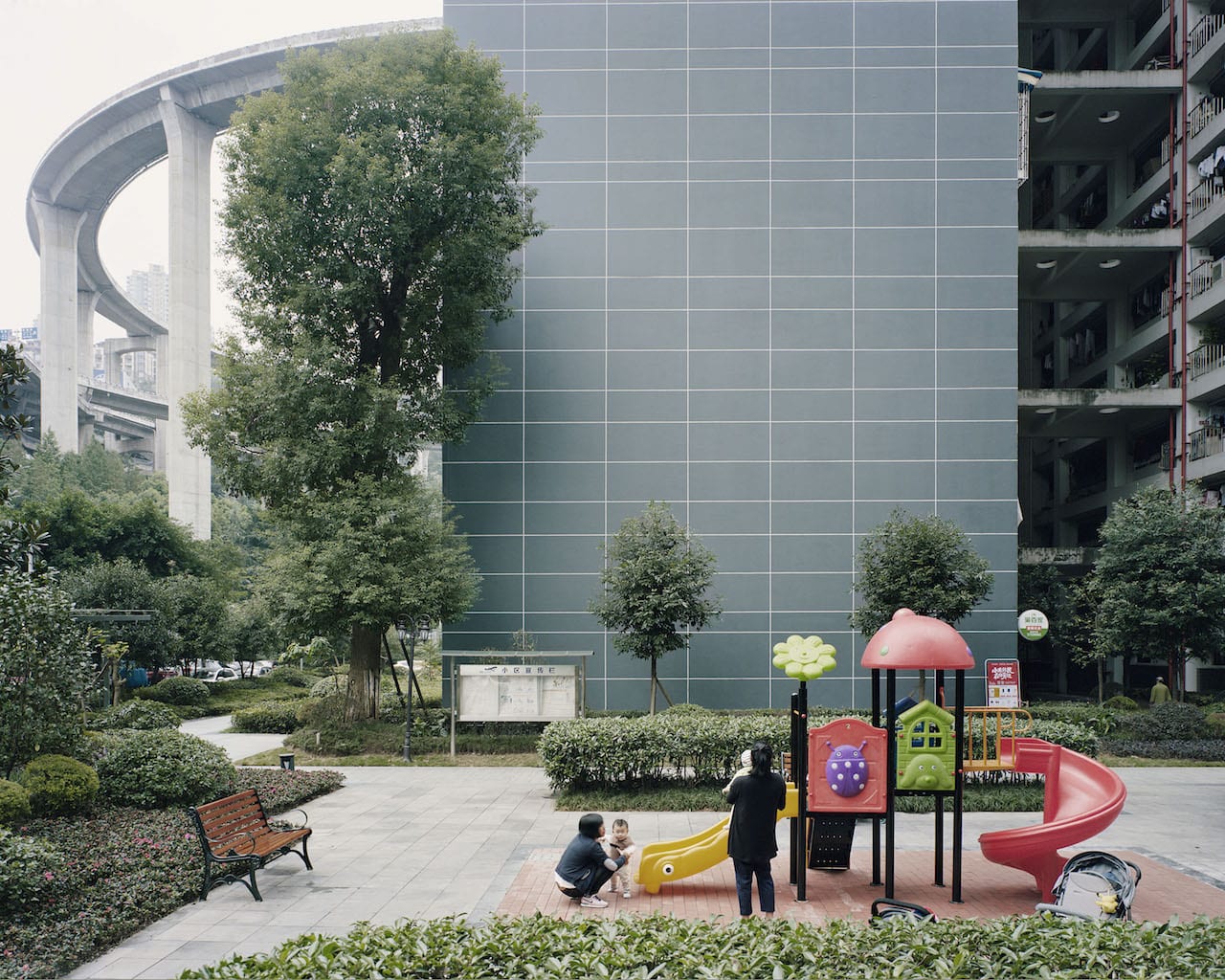
The series includes photographs of a “community activity area” in the basement of a 30-floor apartment building, where a child’s scooter dots the corner of one of the frames. “My daughter has a scooter like that,” says Preston, “I was glad she didn’t have to use it in there. It felt like a prison to me”.
In Forest, Preston hopes to open up a dialogue about conservation and urbanisation. By the time you have a square of people with trees in background, she says, “it’s not just about trees it’s about life”. “The viewer can decide what they get out from it.”
www.yanwangpreston.com Yan Wang Preston’s Forest is published by Hatje Cantz, priced €50 www.hatjecantz.de/yan-wang-preston-7175-1.html
Yan Wang Preston is currently raising funds to publish her project Mother River into a photobook. Read BJP’s interview with Preston on it from March 2017, when it was exhibited at Impressions Gallery www.1854.photography/2017/03/exhibition-mother-river-by-yan-wang-preston
Visit Yan Wang Preston’s kickstarter page here: https://www.kickstarter.com/projects/1550064581/mother-river-a-photobook-by-yan-wang-preston/description
